Content Warning: Matias Sosa-Wheelock’s death affected all members of the campus community differently, depending on individual experiences that night, in the days following or with mental health and mental healthcare at other points in their lives. This special report includes in-depth reporting on the response to Sosa-Wheelock’s death as well as the state of mental health and healthcare on campus more broadly. While we have refrained from including graphic details, it may nonetheless be difficult to read. Before beginning, please be aware.
For a list of support resources on and off campus, visit this page.
Kagin Commons is probably best known for the Alexander G. Hill Ballroom, which hosts notable speakers and the eponymous Kagin dances. Below the ballroom, the main floor of the building is an open, modern room full of promotional materials, whiteboards and flags. Enter the room and on the left are the cubicles of the Career Development Center. To the right is International Student Programs, which provides assistance and programming for students’ adjustment to life in the United States and at Macalester.
Then on the right, in contrast to the loud decor of the rest of the room, sits the Disability Services office. You’d be forgiven for not knowing that it’s there. It’s on the opposite end of campus from its most obvious partner, the Health and Wellness Center (HWC). The interactive map of Macalester’s campus makes no mention of it in its description of Kagin Commons.
But despite its geographic isolation, Disability Services has been busy. As of Jan. 2018, 247 students were receiving accommodations, 157 of them for psychological needs.
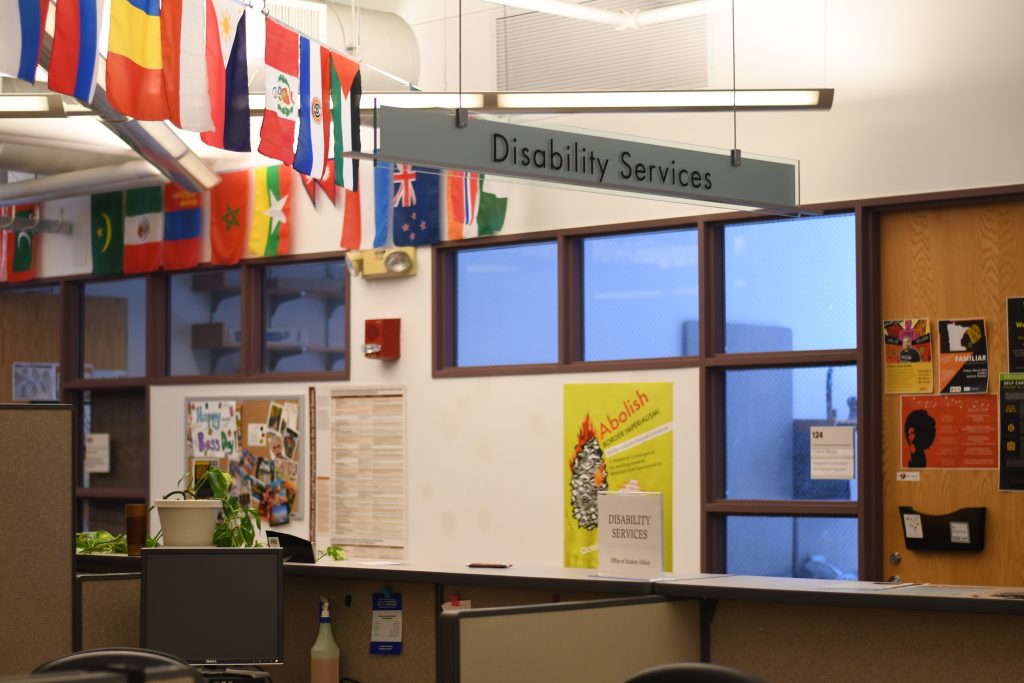
In the last several years, the department’s workload has increased dramatically. According to Dean of Students DeMethra LaSha Bradley, the department served 138 people for the entire 2014-15 academic year.
The college has responded to the increased need for accommodations with the hiring of its first full-time Director of Disability Services, Melissa Fletcher, whose employment Bradley announced on April 17. Fletcher, who served as director of Student Accessibility Services at Concordia University St. Paul for 13 years, will step into the role on May 29. She will replace Allison Quinn, who served as interim director of the office after former Assistant Dean of Students Robin Hart Ruthenbeck left.
While all colleges and universities receiving federal funding are required to designate someone on staff to serve as an Americans with Disabilities Act (ADA) coordinator, the coordinator role does not necessarily have to be full-time and there is no requirement to establish a disability services office. Macalester has related legal obligations under Section 504 of the Rehabilitation Act of 1973, which states that “no otherwise qualified individual with a disability in the United States… shall, solely by reason of his or her disability, be excluded from the participation in, be denied the benefits of, or be subjected to discrimination under any program or activity receiving Federal financial assistance or under any program or activity conducted by any Executive agency.” The United States includes “emotional and mental illness” under the umbrella of conditions and diagnoses protected from discriminatory practices.
The 1990 Americans with Disabilities Act (ADA) and 2008 Americans with Disabilities Act Amendment Act (ADAAA) took the work of Section 504 one step further.
While Section 504 laid a foundation for disability civil rights, its reach was only as far as the federal dollar, and private entities were exempt. ADA expanded the reach and standards of protections creating two categories in the process: Title II for public entities with state and federal funding and Title III for private entities with federal funding.
In many ways, Macalester has already, in Bradley’s words, “move[d] way past [ADA] compliance.”
Chair of the Disability, Chronic Pain and Chronic Illness Identity Collective Leah Wilcox ’18 agreed, but took issue with how accommodations work in practice.
“We have a lot of good accessibility options on campus, but they’re inaccessible accessibility options,” she said. “In order to use them you need to have energy. You need to be able to advocate for yourself. You need to have reached a point where you’re O.K. with talking about some of your stuff.
“The people who need it the most, who need accommodations the most, they aren’t there,” she continued. “That has been really, really difficult for me to see and experience.”
In order to use these accessibility options, you have to be aware of them in the first place. A number of students with mental health concerns told The Mac Weekly that they were unaware that they could use Disability Services to get accomodations.
“I didn’t really realize that that was accessible to me until [Residence Hall Director] Wayne [Glass] told me,” Anni Clark ’21 said.
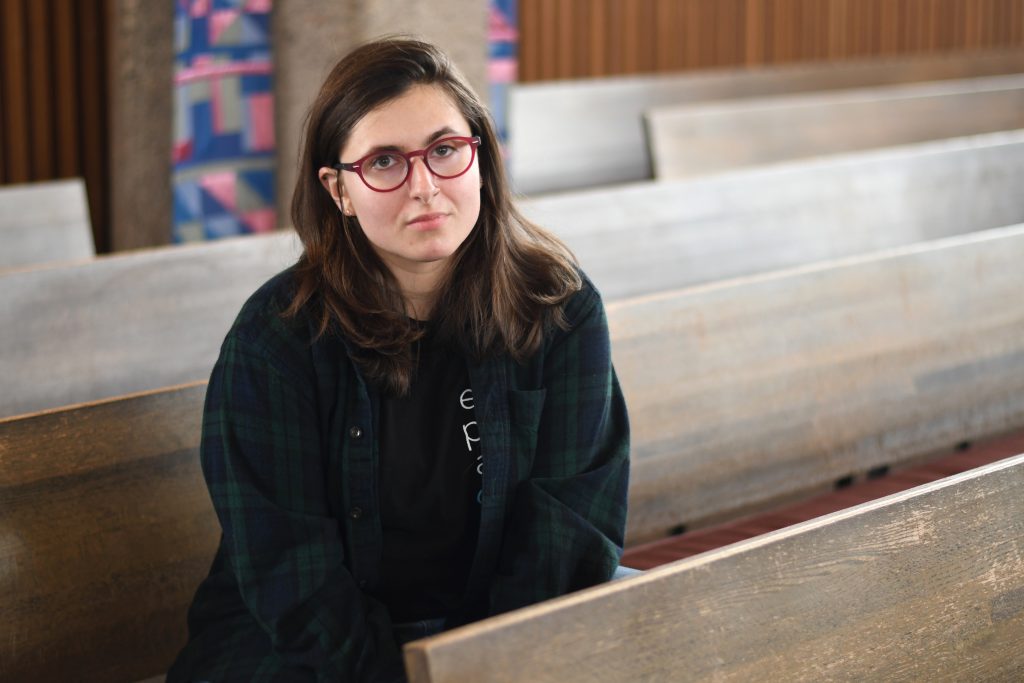
Photo by Maya Rait ’18.
Andrew Smith ’19 first heard about these options during an interview with The Mac Weekly. “I was not ever made aware of that. This is the first time I’ve heard that,” he said.
The lack of information suggests a disconnect between the HWC and Disability Services. Many students who have received counseling on campus were not told about the possibility of receiving accommodations – so while Disability Services can be an important part of Macalester’s mental health apparatus, it’s rarely an entry point to care.
Even students who know about these accommodations may be disinclined from seeking out accommodations.
“For me,” Wilcox said, “the main barrier to getting accommodations was that I felt internally very guilty about using them.” Smith agreed, saying that he most likely wouldn’t have used accommodations even if he was aware of them.
Part of the work of the Disability Identity Collective is fighting this stigma.
“Someone with mental illness, where it’s impacting their life and their ability to do stuff, they only have, like, five hours of useful energy,” Wilcox said. “That’s, in a way, the same experience as someone who only has five hours of energy ’cause they’re very distracted and sort of foggy and in pain.”
Once they’ve secured these accommodations, students still run into difficulties in using them.
Wilcox described her feelings of guilt when asking for extensions. Professors “would pick up on that. And they questioned me, basically.” She described an example situation.
“They’d say ‘Oh, sounds like you think you could’ve done more,’ and I’d say ‘Yeah, I think I could’ve done more,’ and they’d say ‘Well, I don’t think I should give you an extension then.’ And then I’d say, ‘No! I need an extension,’ and they’d say ‘Did you have any free time this week?’”
She also recounted a specific scenario that closely fit this script. “I said, ‘Yeah, there was one hour this week that I hung out with a friend instead of resting or studying,’ which is, like, one hour, really? And he was like ‘Well, see, I’m only going to give you until the end of the day then.’ I didn’t say ‘Are you kidding me?’ because I was already in deep distress.”
Using accommodations can, ironically, be stressful.
“I felt like my stress wasn’t [validated] unless I had the stamp of a visit to the HWC, and that my stress dealing with my essays wasn’t stressful enough until I visited the MAX Center, which I tried unsuccessfully to [do],” Malvika Shankar ’19 said. “I wanted to be taken for my word when I requested for an extension and not to have felt punished for it.”
To combat these challenges, some students have taken matters into their own hands.
“I’ve gotten into the habit of [using]… this email that I send out to all my professors at the beginning of the semester. I’m like, ‘Oh, you’re going to get an email. If you haven’t already gotten that email, these are the accommodations, this is my plan for using these accommodations,’” Liz Roten said. “So if I’m going to miss a class I say, ‘I will let you know before class. It may be five minutes before class, but I will let you know before.’ And with deadline extensions, I ask for it 24 to 48 hours in advance and it won’t be for more than, like, 24 or 48 hours.”
Faculty believe that the demand for disability services help has outgrown the office.
“If we reach out to student services saying, ‘We are not sure about this student, we think they need help,’ how soon can we expect to hear from them?” Biology professor and chair of the Strategic Planning and Analysis committee Devavani Chatterjea said. “It used to be pretty instantaneous, but now the volume and the need is larger.”
Russian and international studies professor James von Geldern agreed. “[The mental health issue has] grown so quickly that the college, for as good reasons as not, has not been able to keep up,” he said. “Sometimes the office that sends [out] accommodations notices is keeping up and sometimes it’s not at all.”
Students hope that Fletcher’s hiring is part of a shift to meet this new need. “We don’t have the abilities of students who don’t live with mental illness or disabilities,” Tess Huber ’18 said. “We need administrative support badly. I’m really, really hopeful that we’re going to get some.”

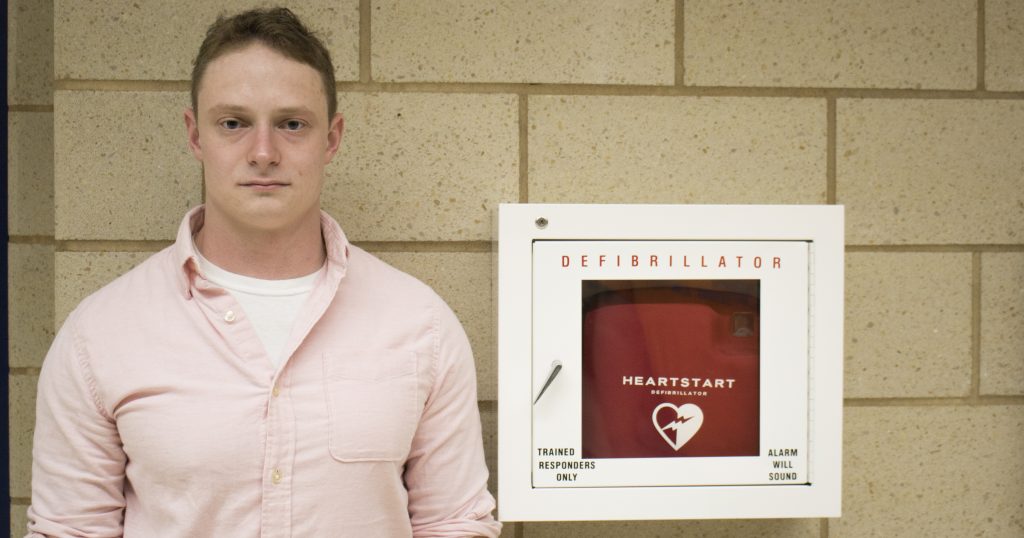


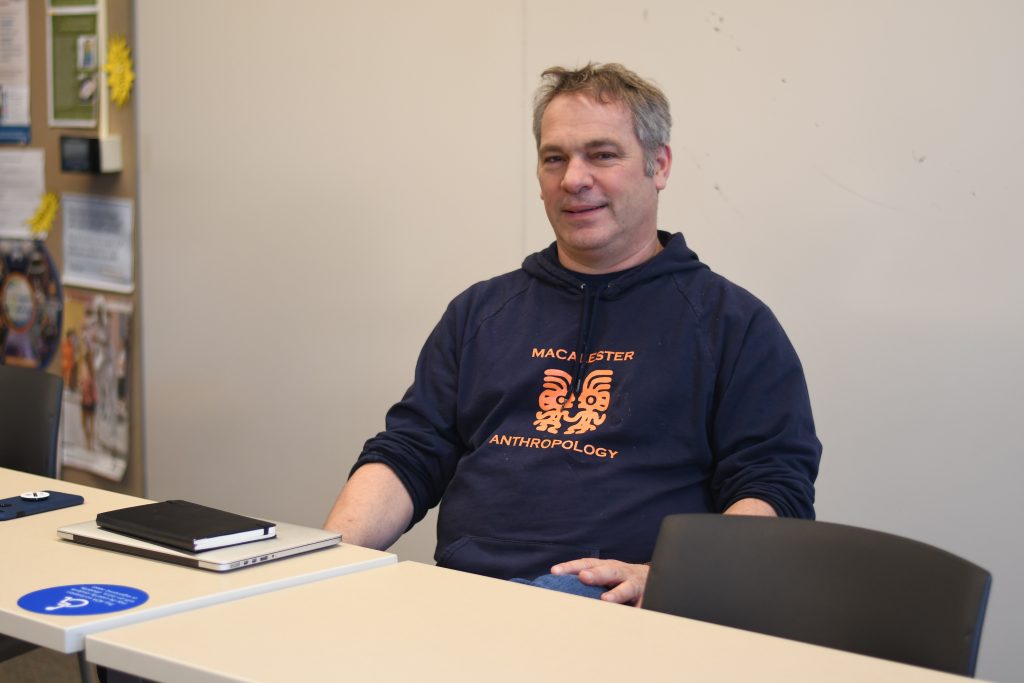
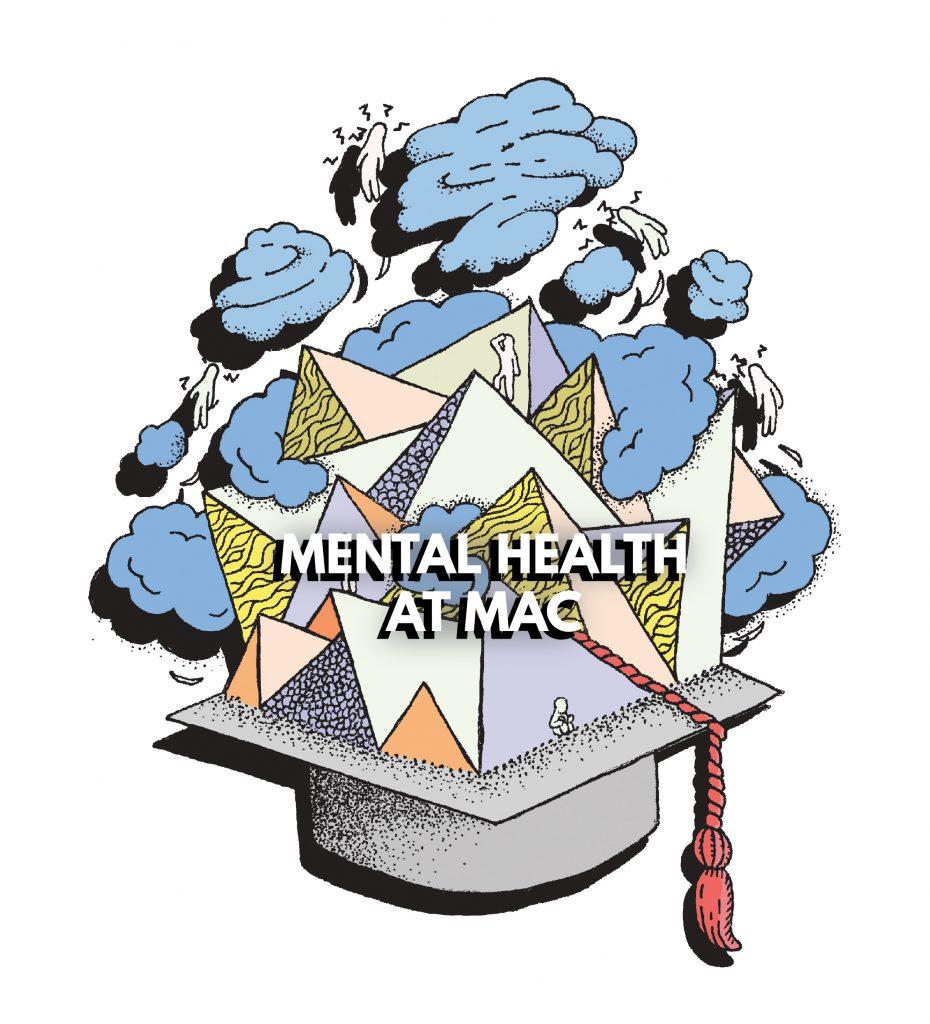
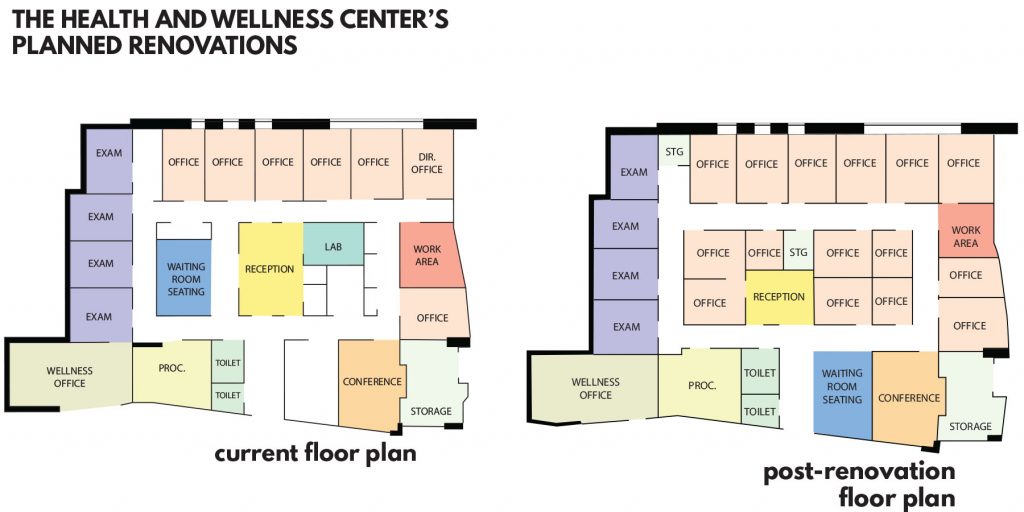
Leonard Rampling • Sep 10, 2019 at 4:06 pm
I think other website proprietors should take this site as an model, very clean and excellent user genial style and design, as well as the content. You are an expert in this topic!
Adam Brown • Sep 6, 2019 at 10:06 am
I’m still learning from you, while I’m improving myself. I absolutely love reading all that is written on your blog.Keep the aarticles coming. I enjoyed it!
ispoofer license key pokemon go • Aug 16, 2019 at 2:51 pm
I simply must tell you that you have an excellent and unique post that I kinda enjoyed reading.
paragon ntfs 15 crack • Aug 15, 2019 at 9:09 am
Found this on google and I’m happy I did. Well written article.
feeebhax • Aug 14, 2019 at 5:40 pm
Thanks for this website. I definitely agree with what you are saying.
how to crack hoichoi app • Aug 13, 2019 at 8:56 pm
I have interest in this, danke.
answer republic • Aug 10, 2019 at 8:03 am
Intresting, will come back here more often.
office setup • Aug 9, 2019 at 5:56 am
Hi,
I just want to say that i like this blog/article. I honestly appreciate people like you! It was really informative. I definitely delighting in every bit of it I have you bookmarked to look into new stuff you post.
ปั้มไลค์ • Aug 6, 2019 at 9:11 pm
Like!! Great article post.Really thank you! Really Cool.
roblox account generator • Aug 5, 2019 at 12:34 pm
Ni hao, i really think i will be back to your site
krunker aimbot • Aug 3, 2019 at 8:18 am
I conceive this web site holds some real superb information for everyone : D.
xbox one mods free download • Jul 30, 2019 at 3:09 pm
Ha, here from yahoo, this is what i was looking for.
ezfrags • Jul 26, 2019 at 9:56 am
Thanks for this article. I definitely agree with what you are saying.
ezfrags • Jul 25, 2019 at 8:51 am
Enjoyed reading through this, very good stuff, thankyou .
online security key for farm simulator 19 • Jul 24, 2019 at 6:39 am
Yeah bookmaking this wasn’t a risky decision outstanding post! .
Maud Carroca • Jul 23, 2019 at 6:33 am
Mass parsite http://bit.ly/2W9CVkn
evogame net wifi • Jul 23, 2019 at 6:23 am
Cheers, here from google, me enjoyng this, will come back again.
prodigy hacks • Jul 21, 2019 at 7:54 am
I must say, as a lot as I enjoyed reading what you had to say, I couldnt help but lose interest after a while.
www.norton.com • Jul 17, 2019 at 10:49 pm
Hi,
I found your internet site using Google whilst searching for a similar subject, your internet site showed up. I will see to it to bookmark it as well as come back to read more of your helpful information. Many thanks for sharing such an excellent info.
roblox fps unlocker • Jul 9, 2019 at 3:37 am
Cheers, great stuff, Me like.
spyhunter 5.4.2.101 crack • Jul 8, 2019 at 1:53 am
bing got me here. Cheers!
black ops 4 license key free • Jul 7, 2019 at 1:42 am
stays on topic and states valid points. Thank you.
rekordbox torrent download • Jul 6, 2019 at 4:03 pm
bing took me here. Cheers!
gx tool pubg uc hack apk download • Jul 6, 2019 at 3:37 am
Your post has proven useful to me.
synapse x free • Jul 5, 2019 at 11:22 pm
Appreciate it for this howling post, I am glad I observed this internet site on yahoo.
tom clancy's the division hacks • Jul 5, 2019 at 12:27 pm
Your web has proven useful to me.
dego hack • Jul 5, 2019 at 12:08 am
Ha, here from yahoo, this is what i was looking for.
phantom forces hack • Jul 4, 2019 at 11:54 am
I have interest in this, thanks.
prison life hack download • Jul 4, 2019 at 12:06 am
Hello, yahoo lead me here, keep up nice work.
cyberhackid • Jul 3, 2019 at 12:04 pm
Hi, bing lead me here, keep up great work.
download vnhax • Jul 3, 2019 at 12:10 am
I like this website its a master peace ! Glad I found this on google .
redline v3.0 • Jul 2, 2019 at 5:59 am
Enjoyed examining this, very good stuff, thanks .
free cheats for rust • Jul 2, 2019 at 12:36 am
Ni hao, i really think i will be back to your website
codes for mining simulator 2019 • Jul 1, 2019 at 12:35 pm
I conceive you have mentioned some very interesting details , appreciate it for the post.
spare reborn roblox • Jul 1, 2019 at 1:51 am
I am glad to be one of the visitors on this great website (:, appreciate it for posting .
zee 5 hack • Jun 29, 2019 at 1:01 am
I like this site because so much useful stuff on here : D.
advanced systemcare 11.5 • Jun 28, 2019 at 6:13 am
I conceive this web site holds some real superb information for everyone : D.
strucid aimbot script • Jun 28, 2019 at 12:29 am
This is awesome!
synapse x serial key • Jun 27, 2019 at 1:51 pm
This is cool!
ispoofer key • Jun 26, 2019 at 11:01 pm
I like this site because so much useful stuff on here : D.
krunker aimbot • Jun 25, 2019 at 11:39 pm
I truly enjoy looking through on this web site , it holds superb content .
geometry dash 2.11 download pc • Jun 25, 2019 at 1:00 pm
Very interesting points you have remarked, appreciate it for putting up.
gx tool pro apk download • Jun 24, 2019 at 8:20 am
Good Morning, glad that i stumble on this in google. Thanks!
estate planning New Zealand • Jun 24, 2019 at 4:11 am
Hi,
I just want to say that i like this blog/article. I honestly appreciate people like you! It was really informative. Your site is useful. Thank you for sharing! estate planning in new zealand
estate planning New Zealand • Jun 24, 2019 at 4:09 am
Hi,
I just want to say that i like this blog/article. I honestly appreciate people like you! It was really informative. Your site is useful. Thank you for sharing!
star valor cheats • Jun 23, 2019 at 10:17 am
I really enjoy examining on this page , it has got great posts .
nonsense diamond key • Jun 21, 2019 at 12:52 am
This i like. Thanks!
vn hax download • Jun 20, 2019 at 11:43 am
Good Day, glad that i found on this in yahoo. Thanks!
proxo key • Jun 19, 2019 at 2:59 am
I conceive this web site holds some real superb information for everyone : D.
vn hax • Jun 16, 2019 at 8:04 pm
Great article to check out, glad that Yahoo brought me here, Keep Up nice Work
protosmasher cracked • Jun 3, 2019 at 2:27 am
I am not rattling great with English but I get hold this really easygoing to read .
hacks counter blox script • Jun 1, 2019 at 10:37 pm
Thank You for this.
mpl pro • Jun 1, 2019 at 10:30 am
I am glad to be one of the visitors on this great website (:, appreciate it for posting .
fortnite aimbot download • May 31, 2019 at 7:36 am
Thank You for this.
xbox one mods free download • May 31, 2019 at 4:52 am
Cheers, i really think i will be back to your page
vn hax • May 29, 2019 at 10:18 pm
very cool post, i actually love this web site, carry on it
redline v3.0 • May 29, 2019 at 9:06 am
Great, bing took me stright here. thanks btw for info. Cheers!
aimbot free download fortnite • May 29, 2019 at 4:39 am
Me like, will read more. Thanks!
ispoofer key • May 29, 2019 at 12:39 am
yahoo took me here. Thanks!
expressvpn key • May 28, 2019 at 11:26 am
You got yourself a new follower.
strucid hacks • May 28, 2019 at 2:23 am
very interesting post, i actually like this web site, carry on it
rust hacks • May 27, 2019 at 12:04 pm
Your post has proven useful to me.
sims 4 seasons code free • May 26, 2019 at 11:33 pm
Just wanna input on few general things, The website layout is perfect, the articles is very superb : D.
resetter epson l1110 • May 26, 2019 at 10:16 am
I am not rattling great with English but I get hold this really easygoing to read .
smart defrag 6.2 serial key • May 26, 2019 at 7:34 am
I must say, as a lot as I enjoyed reading what you had to say, I couldnt help but lose interest after a while.
iobit uninstaller 7.5 key • May 26, 2019 at 1:15 am
Enjoyed reading through this, very good stuff, thankyou .
cheats for hempire game • May 25, 2019 at 10:29 pm
Hi, yahoo lead me here, keep up nice work.
ispoofer pogo activate seriale • May 24, 2019 at 10:09 am
I consider something really special in this site.
eternity.cc v9 • May 23, 2019 at 11:42 pm
bing bring me here. Cheers!
vn hax • May 23, 2019 at 10:54 am
I conceive you have mentioned some very interesting details , appreciate it for the post.
bitcoin adder v.1.3.00 free download • May 23, 2019 at 2:10 am
I dugg some of you post as I thought they were very beneficial invaluable
krunker hacks • May 22, 2019 at 10:31 pm
I must say, as a lot as I enjoyed reading what you had to say, I couldnt help but lose interest after a while.
nonsense diamond • May 22, 2019 at 10:13 am
Cheers, i really think i will be back to your website
free fire hack version unlimited diamond • May 21, 2019 at 8:23 am
Respect to website author , some wonderful entropy.
redline v3.0 • May 20, 2019 at 11:07 pm
I must say got into this website. I found it to be interesting and loaded with unique points of view.
smutstone • May 20, 2019 at 3:37 am
Appreciate it for this howling post, I am glad I observed this internet site on yahoo.
mining simulator codes 2019 • May 18, 2019 at 10:58 pm
I must say, as a lot as I enjoyed reading what you had to say, I couldnt help but lose interest after a while.
led ryggsäck • May 18, 2019 at 6:57 am
Some truly wow posts on this web site , appreciate it for contribution.
chaturbate hack cheat engine 2018 • May 18, 2019 at 12:06 am
Very interesting points you have remarked, appreciate it for putting up.
redline v3.0 • May 17, 2019 at 10:40 am
I’m impressed, I have to admit. Genuinely rarely should i encounter a weblog that’s both educative and entertaining, and let me tell you, you may have hit the nail about the head. Your idea is outstanding; the problem is an element that insufficient persons are speaking intelligently about. I am delighted we came across this during my look for something with this.
red dead redemption 2 digital key resale • May 17, 2019 at 7:36 am
I really enjoy examining on this website , it has got fine posts .
fallout 76 hacks • May 17, 2019 at 2:26 am
I like this site because so much useful stuff on here : D.
nonsense diamond 1.9 • May 16, 2019 at 11:00 pm
Hello, i really think i will be back to your website
fortnite aimbot download • May 16, 2019 at 8:46 am
I am not rattling great with English but I get hold this really easygoing to read .
vn hax • May 16, 2019 at 4:52 am
Very interesting points you have remarked, appreciate it for putting up.
warframe aimbot • May 15, 2019 at 9:15 am
I conceive this web site holds some real superb information for everyone : D.